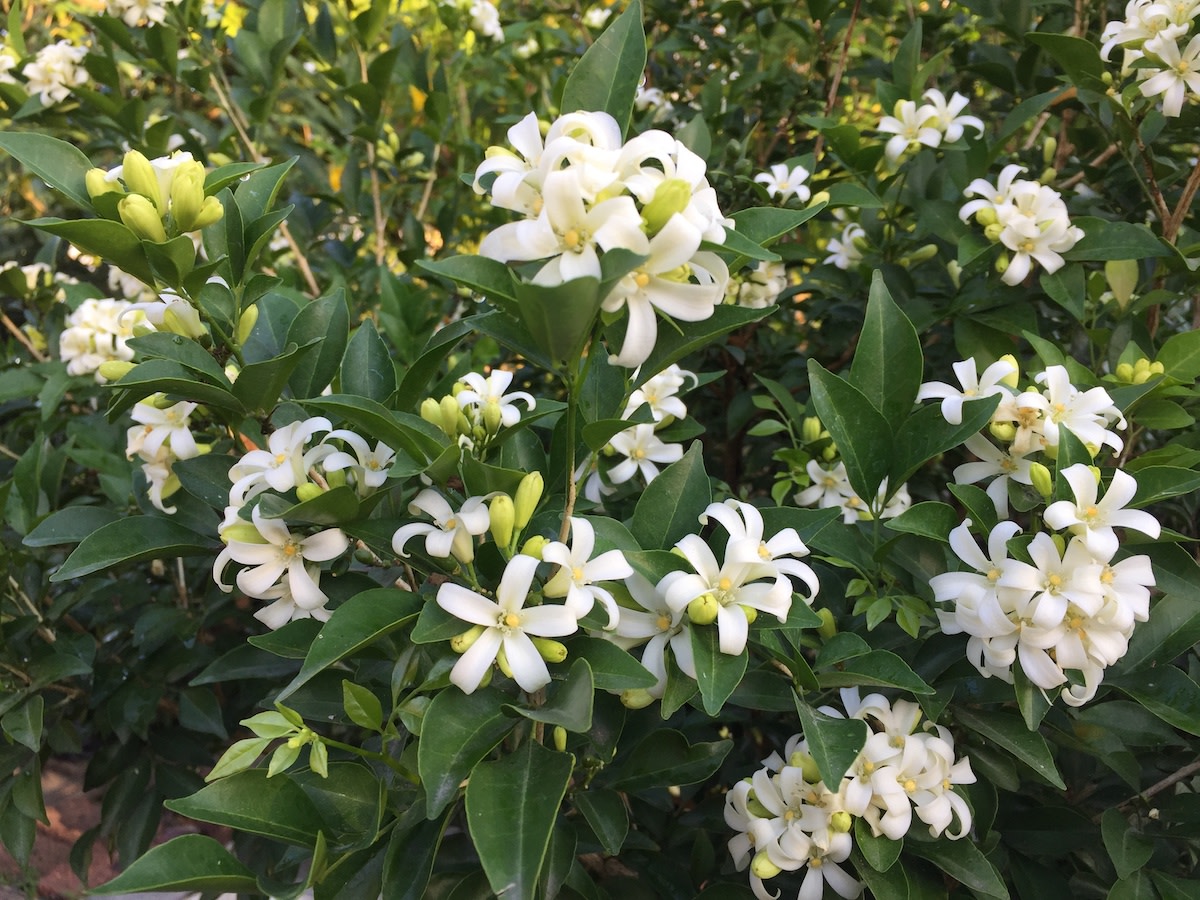How to Grow and Care for Orange Jasmine in Your Garden
Written by MasterClass
Last updated: Sep 20, 2021 • 3 min read
If you’re looking for a low-maintenance plant to bring plenty of helpful pollinators to your garden, orange jasmine might be the right thing for you to plant.
Learn From the Best
What Is Orange Jasmine?
Orange jasmine (scientific name Murraya paniculata) is a small, warm-weather evergreen shrub that is native to Asia and Australia. This tropical plant produces fragrant flowers in a white color (called orange-blossoms) that bloom year-round in warm climates. Orange jasmine also produces deep green leaves shaped like ovals and small red fruit that attract pollinators like insects and birds into your garden. Orange jasmine is also known by the common names orange jessamine, satinwood, mock orange, or chalcas, and is a part of the Rutaceae (citrus) family.
When to Plant Orange Jasmine
New orange jasmine plants are best planted in early spring as soon as the last frost has reliably passed if you live in a climate that has cold winters. Orange jasmine plants grow best in warm climates characteristic of USDA hardiness zones 10 and above. These plants thrive in full sun in the morning and dappled shade in the afternoon. If you live in a climate with cold winters, consider planting your Orange Jasmine in a container so that you can move it inside during the cold months, because this plant does not tolerate frost.
How to Grow Orange Jasmine
Orange jasmine flowers can be grown from stem-tip cuttings, but the simplest way to propagate these plants is from seed. Follow these simple instructions for growing your own orange jasmine plants from seed.
- 1. Prepare your seeds. Soak your seeds for 24 hours before you plan to plant them. Prepare a six-pack of seed sprouting cells with potting mix, and water well. Loosen up the soil to make sure that it is draining properly.
- 2. Plant your seeds. Place one seed in each soil-filled cell. Cover the cells in cling wrap plastic so that your seeds can moisture. Place your cells in a sunny place indoors, such as on a windowsill. Continue to water the seeds as they begin to sprout.
- 3. Re-pot your seedlings. Once your seedlings have sprouted at least two pairs of true leaves, you can re-pot each sprouted seedling into a new container. Keep them indoors in a sunny place for at least a month before you bring them outside.
- 4. Choose a location. Decide where in your garden you're going to plant your orange jasmine plants. Orange jasmine does well in containers or pots in climates with warm winters, but you can plant them outside if you live in a tropical climate. Choose a place in your garden that receives full sun in the morning and part shade in the afternoon to protect your plants from too much direct sunlight.
4 Orange Jasmine Care Tips
Orange jasmine plants are low-maintenance plants that are fairly simple to maintain. However, there are a few things you can do to set your plants up for success.
- 1. Water your plants regularly. Humidity-loving orange jasmine needs a good amount of water to thrive. Watering your plant once a week should be sufficient, but you may need to water more regularly if you live in particularly dry or arid conditions. Once the top two inches of soil have dried out, you should water your plant again.
- 2. Feed your plant with fertilizer. Feed your orange jasmine with fertilizer every three to four weeks through its active growing season (spring to fall). Choose a fertilizer specifically made for evergreens.
- 3. Prune your plant. Orange jasmine is a fast-growing shrub and without regular pruning, it can get out of control. You can also trim it into a small tree if you prune it properly. Prune away any dead, diseased, or damaged branches when you see them. Monitor your plant and trim it regularly, rather than over-trimming it.
- 4. Protect your plant from pests. Orange jasmine plants can attract several pests including soil nematodes, whiteflies, scale, and sooty mold. Protect your plants from these pests by buying them from reliable sources to ensure your plant isn't already infested. Neem oil protects your soil from nematodes and whiteflies, while regular pruning can help keep scale at bay.
Learn More
Grow your own garden with Ron Finley, the self-described "Gangster Gardener." Get the MasterClass Annual Membership and learn how to cultivate fresh herbs and vegetables, keep your house plants alive, and use compost to make your community—and the world—a better place.
